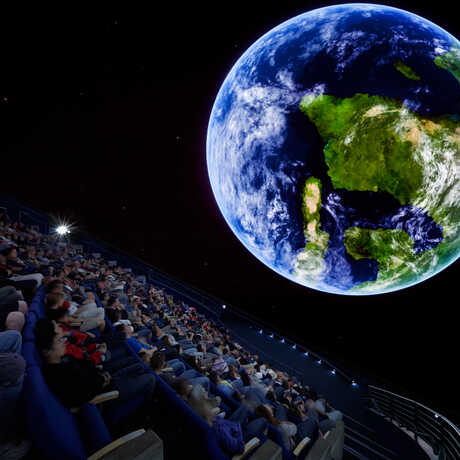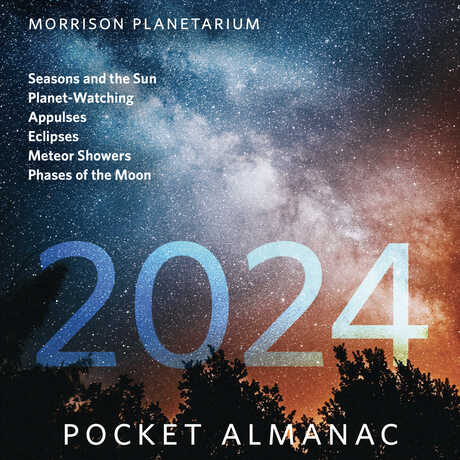Benjamin Dean Astronomy Lectures
Cosmic Alchemy: How Neutron Star Smash-Ups Forge Heavy Atoms

This fanciful illustration depicts colliding super-dense neutrons stars as the alchemists of the Universe and the creators of the heaviest elements.
Cosmic Alchemy: How Neutron Star Smash-Ups Forge Heavy Atoms
Monday, November 13, 2023
7:30 pm, Morrison Planetarium
Featuring Dr. Enrico Ramirez-Ruiz, University of California, Santa Cruz
The source of about half of the heaviest elements in the Universe has been a mystery for a long time. Although the general picture of element formation is well understood, many questions about the astrophysical details remain to be answered. The key may lie in the collision of neutron stars—violent, energetic, and unusual events that we are now beginning to observe. This talk will focus on recent advances in our understanding of the origin of the heaviest and rarest elements in the Universe.
About Enrico Ramirez-Ruiz

Enrico Ramirez-Ruiz is a Professor and the Vera Rubin Presidential Chair at the University of California, Santa Cruz (UCSC). After studying at the University of Cambridge, he was the John Bahcall Fellow at the Institute for Advanced Study in Princeton. Since joining the UCSC faculty in 2007, Ramirez-Ruiz has won a number of awards for his research, including a Packard Fellowship, the NSF CAREER Award, the Radcliffe Fellowship at Harvard, the Niels Bohr Professorship from the Danish National Research Foundation, the HEAD Mid-Career Prize from the AAS and the Bouchet Award and the Dwight Nicholson Medal from the American Physical Society. He is a fellow of the American Physical Society and member of the Mexican Academy of Sciences, California Academy of Sciences, and the American Academy of Arts and Sciences.
Professor Ramirez-Ruiz is eager to understand our origins and disruptive events in the night sky. He works with computer models to understand the cataclysmic death of stars and recently led efforts to uncover the origin of the heaviest elements in the universe. Ramirez-Ruiz tests out his theories with complex computer simulations that defy the boundaries of human experience and the assumptions we make about the universe.
He has authored or co-authored about two hundred and eighty research papers, two dozen in Science and Nature. He has lectured, broadcast and written widely on science and is a highly decorated teacher and research adviser. As the director of the Lamat Institute, he works vigorously to support the promotion and retention of women and historically marginalized students in STEM.
From outer space to Earth's inner core, explore the universe from Morrison Planetarium's 75-foot digital dome.

Download Morrison Planetarium's 2024 Pocket Almanac to stay up-to-date on eclipses, meteor showers, satellite spottings, and more.
